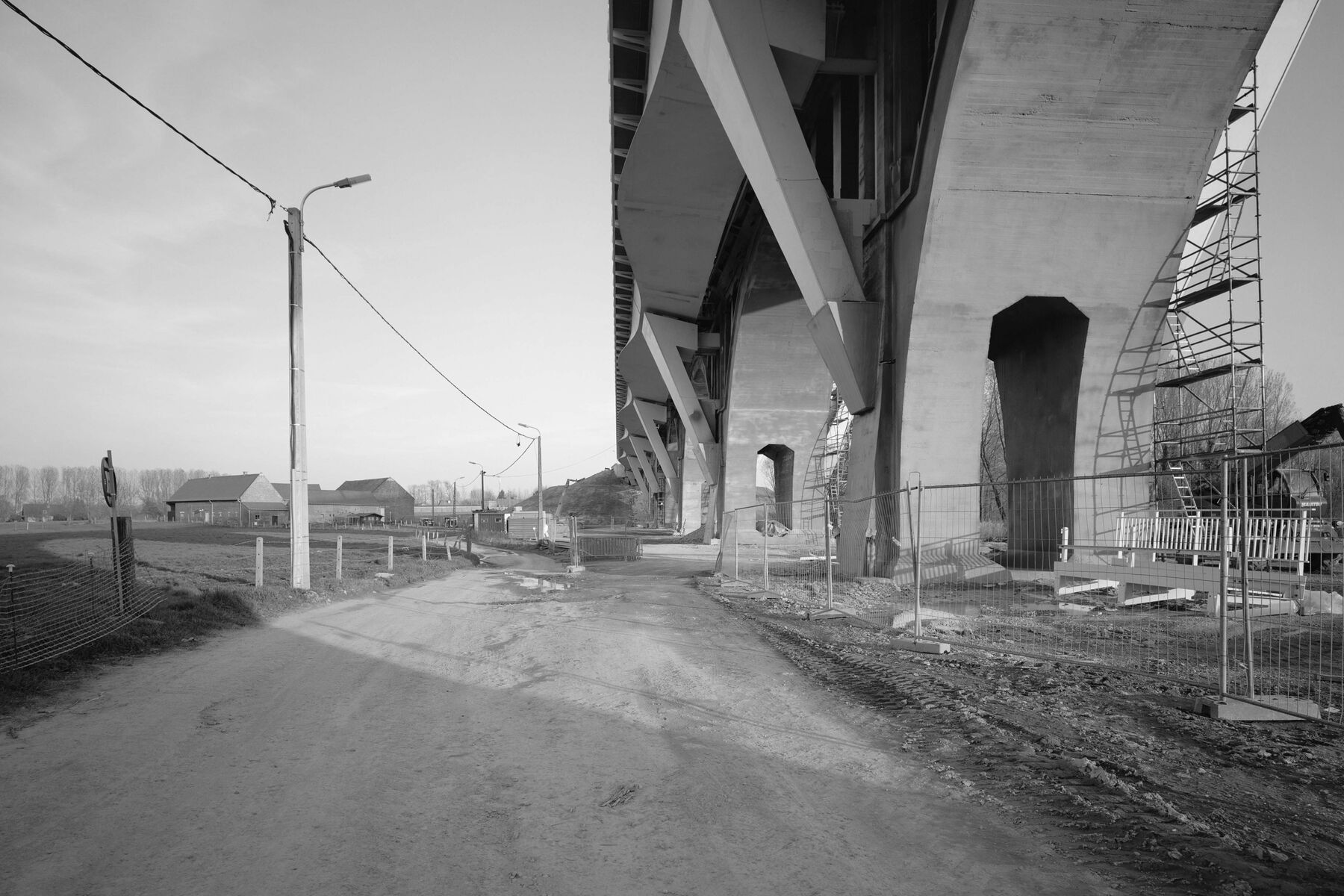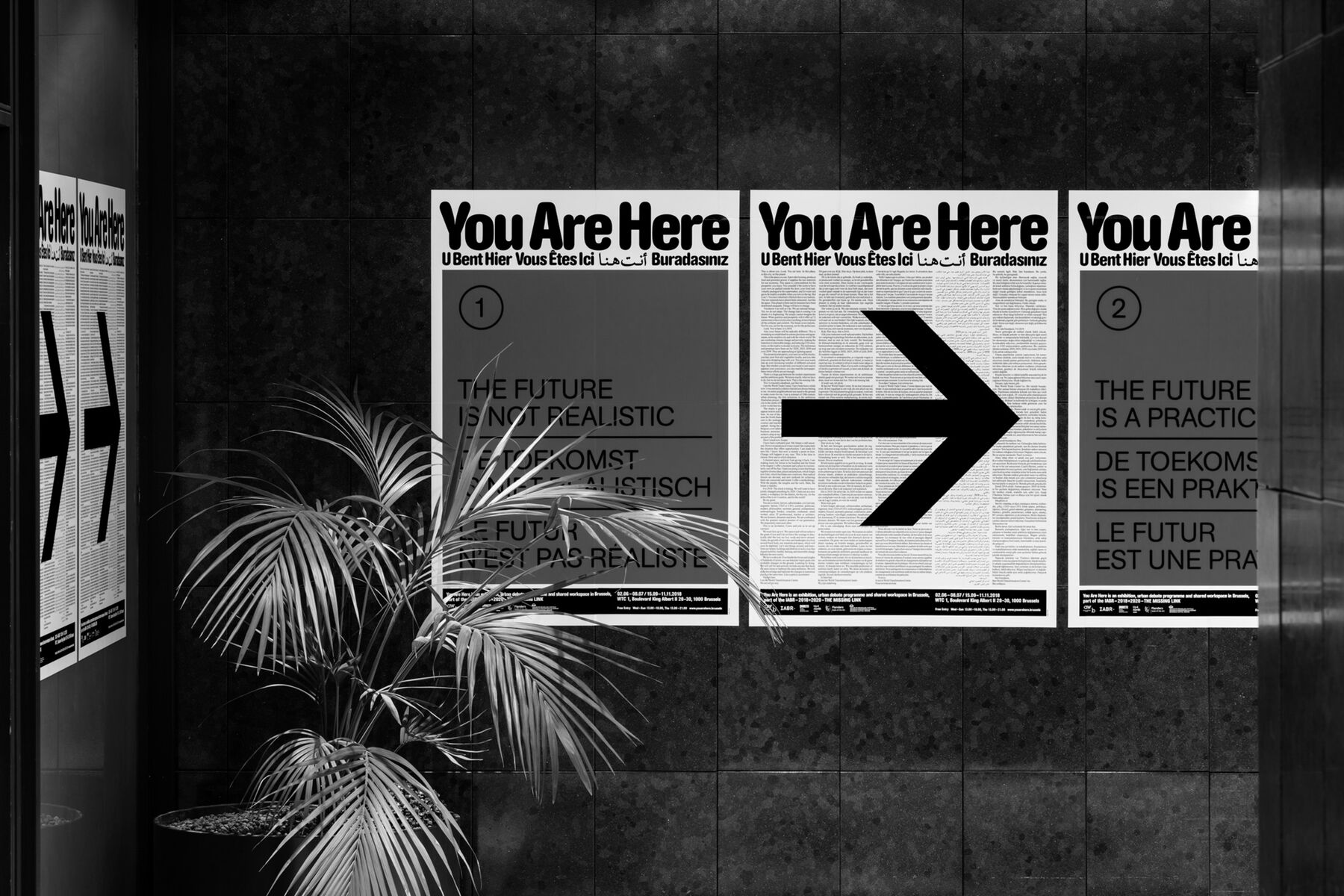The Open Space Movement is an ever-growing group of more than thirty organizations and institutions and more than 400 individual actors who dedicate their joint efforts in a shared interest: open space Together they form an incubation room for an innovative and realization-oriented approach to open space in Flanders.
The members include the Flemish policy domains of Environment and Agriculture, Welfare and Public Health, Economy, Science and Innovation, Chancellery and Governance, as well as numerous interested civil society organizations, academic experts and local actors and boards. The Open Space Movement continues to grow. More and more members are joining. They meet at least once a year to evaluate current projects, and to set the agenda for the future.
What preceded…
The Flemish Land Agency, Architecture Workroom Brussels, the Environmental Department, the Association of Flemish Provinces and the Association of Flemish Cities and Municipalities established the Open Space Platform in 2014. The four founding members set up an ‘integrated program operation’. This method tackles open space issues on a large scale, as a multitude of smaller projects. The support of existing coalitions and the provision of an environment where initiatives can learn from each other is essential here. By increasing the initiative power in the field, we facilitate acceleration.
Water + Land + Scape was the first program to be launched. The great interest and the educational experiences of this first program were the reason to broaden the functioning of the Open Space Platform in the Open Space Movement. The Open Space Movement has been exploring four new programs since 2019: Food + Land + Scape (Voedsel+Land+Schap), Land Affairs (Grondzaken), Sheltered Oases (Luwte-Oases) and Open Spaces (Op(en)Ruimen).




The members of the Open Space Movement share the opinion that the key to many current challenges concerning climate change, water quality, food production, renewable energy and biodiversity can be found in open space. Open space is of vital importance. Urbanization and open space cannot exist without each other.
We can only develop the necessary innovation to achieve all these objectives in an integrated way in cooperation with society. Innovation cannot be conceived by government and subsequently rolled out everywhere as a fixed recipe. It's the other way around: by doing, we learn how to do it. Focussing on learning by doing, the Open Space Movement is building a community that activates existing knowledge and energy within the government and in society, converting it into realizations.
The Open Space Movement also wants to be an open network, workplace and learning environment in the coming years, where existing insights and projects are brought together and where new coalitions and operational programs are developed. The first program, Water + Land + Scape, was rolled out from 2019. The program called on local actors to set up actions based on an integrated approach to water, agriculture and landscape. Fourteen local coalitions, spread across Flanders, have already started. The Open Space Movement will launch four new programs in 2020: Food + Land + Scape, Land Affairs, Sheltered Oases and Open Spaces.
The programs are a translation of challenges and concerns that live in the field. They were created and defined bottom-up. From April to May 2018, more than a hundred actors from local and supra-local organizations were invited to five provincial ‘work tables’. Each worktable was intended to detect as many items as possible. The result is a range of more than twenty recurring open space issues. We then defined the new programs compiled from this list of problems.
Food + Land + Scape
The Food + Land + Scape program is based on the insights of the Productive Landscape Pilot Projects,, the study on European Urban Farm Parks, the Local Food Strategies and numerous promising local projects in Flanders! Food + Land + Scape translates the philosophy of ‘agricultural parks’ into the Flemish context. Food landscapes are productive, high-quality landscapes that provide the city with healthy food and a green, climate-proof environment. The program is a collaboration between VLM, ILVO, Department of Agriculture & Fisheries, the Environmental Department, Team Vlaams Bouwmeester, Architecture Workroom and many local actors.
Ground Affairs
The Ground Affairs program places the living soil on the offensive by working in an integrated way on the resilience of the soil in all its functions (humus building, biodiversity, water storage, etc.) Together with local partners and coalitions, we look for more soil-conscious (joint) ownership and sustainable land use tailored to the location. The program is a collaboration between OVAM, The Environmental Department, VLM, ILVO, INBO, ANB, the Department of Agriculture & Fisheries, the Heritage Agency, VITO, Architecture Workroom and many local actors.
Sheltered Oases
The Sheltered Oases program is aimed at strengthening places of peace and tranquillity in our increasingly denser (and busier and noisy) urban environment. After all, mental well-being and health are increasingly linked to spatial quality, or wider, environmental quality. The program is a collaboration between the Environmental Department, Care and Health Agency, VLM, ANB, the Regional Landscapes, Architecture Workroom and many local actors.
Open Spaces
The Open Spaces program continues to build on the Proeftuinen Ontharding (Decompaction Experimental Gardens). The program wants to explore how we can reduce the use of space and how we can create open spaces with impact but also adapted to the climate. The program is a collaboration between the Environmental Department, VLM, Team Vlaams Bouwmeester, VRP, VMM, Architecture Workroom and many local actors





